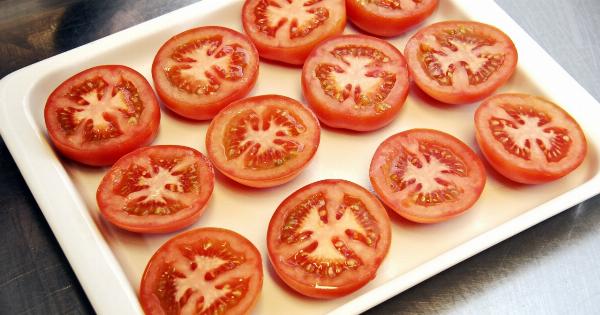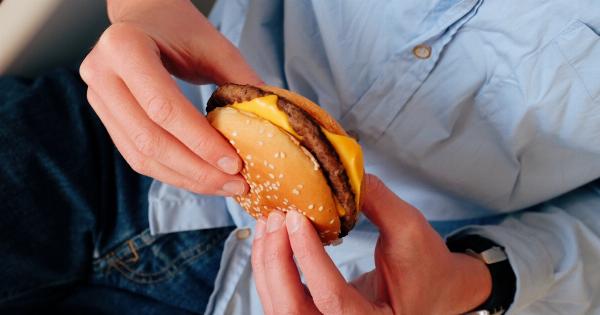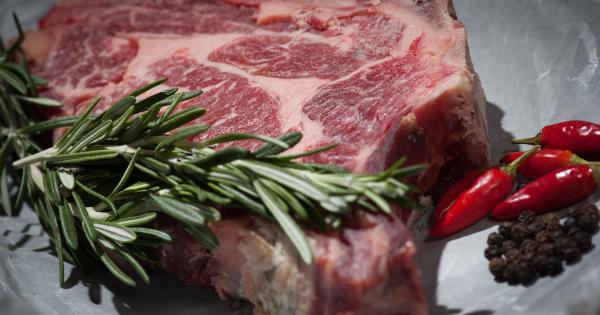Being pregnant is an exciting and magical time in a woman’s life. It comes with its own set of challenges and questions, one of which is what foods are safe to eat. Cheese, a beloved food for many, is often a topic of concern for expecting mothers.
In this article, we will delve into the world of cheese during pregnancy, exploring which types are safe to consume and which ones should be avoided.
1. Pasteurized vs. Unpasteurized Cheese
One of the main concerns with cheese during pregnancy is the risk of contracting foodborne illnesses caused by harmful bacteria such as Listeria.
This bacteria can be present in unpasteurized or raw milk cheeses and can lead to serious complications for both the mother and the baby.
It is highly recommended to avoid consuming unpasteurized cheeses during pregnancy. Make sure to check the labels and opt for cheeses made from pasteurized milk instead.
Pasteurization involves heating the milk to kill potential bacteria, making it safe for consumption.
2. Soft Cheeses
Soft cheeses have a higher moisture content and can provide a breeding ground for harmful bacteria. However, not all soft cheeses are off-limits during pregnancy.
Safe soft cheeses to eat during pregnancy include:.
- Brie
- Camembert
- Mozzarella
- Ricotta
- Processed cheese slices
It is important to note that these soft cheeses must be made from pasteurized milk. Check the packaging or ask your cheese shop to ensure they are safe to consume.
Avoid the following soft cheeses during pregnancy:.
- Blue cheese
- Gorgonzola
- Feta
- Queso blanco
- Queso fresco
- Roquefort
These cheeses are often made from unpasteurized milk and should be avoided to minimize the risk of foodborne illnesses.
3. Hard Cheeses
Hard cheeses have a lower moisture content and are less likely to harbor harmful bacteria. These cheeses are generally safe to consume during pregnancy, provided they are made from pasteurized milk.
Some examples of safe hard cheeses include:.
- Cheddar
- Swiss
- Parmesan
- Gouda
- Provolone
These cheeses are delicious additions to your pregnancy diet and can be enjoyed without worry.
4. Cottage Cheese
Cottage cheese is a popular choice for many due to its low-fat and high-protein content. The good news is that it is generally safe to consume during pregnancy, as long as it is made from pasteurized milk.
However, it is always advisable to check the label or consult your healthcare provider before including it in your diet.
5. Cream Cheese
Cream cheese is a versatile cheese that is often used in various dishes and spreads. The good news is that it is typically made from pasteurized milk, making it safe for consumption during pregnancy.
Whether you spread it on a bagel or use it in a dip, cream cheese can be enjoyed without any worry.
6. Processed Cheese
Processed cheese, such as cheese slices or spreadable cheese wedges, is generally safe to eat during pregnancy. These cheeses undergo additional processing steps, including pasteurization, which makes them safe for consumption.
However, it is always advisable to check the label or ask your healthcare provider if you have any concerns.
7. Goat Cheese
Goat cheese, also known as chèvre, can vary in terms of pasteurization depending on the brand and type. Some types of goat cheese are made from pasteurized milk, making them safe to consume, while others may be made from unpasteurized milk.
It is important to read the labels or consult with a knowledgeable cheese vendor to determine if a specific goat cheese is safe for consumption during pregnancy.
8. The Importance of Proper Handling and Storage
Regardless of the type of cheese you choose, proper handling and storage are essential to reduce the risk of foodborne illnesses. Here are some tips to keep in mind:.
- Always wash your hands before handling cheese.
- Ensure that cheese is stored at the proper temperature.
- Avoid cross-contamination by storing cheese separately from raw meat, poultry, and seafood.
- When in doubt, throw it out. If a cheese smells off or has developed mold, it’s best to discard it.
9. The Benefits of Cheese during Pregnancy
Cheese is a valuable source of nutrients during pregnancy. It is a good source of protein, calcium, and vitamins such as vitamin D and vitamin B12. These nutrients are essential for the development of the baby’s bones, teeth, and overall growth.
Incorporating cheese into a balanced diet can help ensure that both the mother and the baby are receiving the necessary nutrients for a healthy pregnancy.
10. Conclusion
Choosing the right types of cheese during pregnancy is crucial for the safety and well-being of both the mother and the baby.
Opting for pasteurized cheeses, whether they are soft or hard, reduces the risk of foodborne illnesses caused by harmful bacteria.
Remember to check the labels, ask your cheese vendor, and practice proper handling and storage techniques to enjoy cheese safely during this special time.
With the right precautions, you can savor your favorite cheese varieties while ensuring a healthy pregnancy.






























